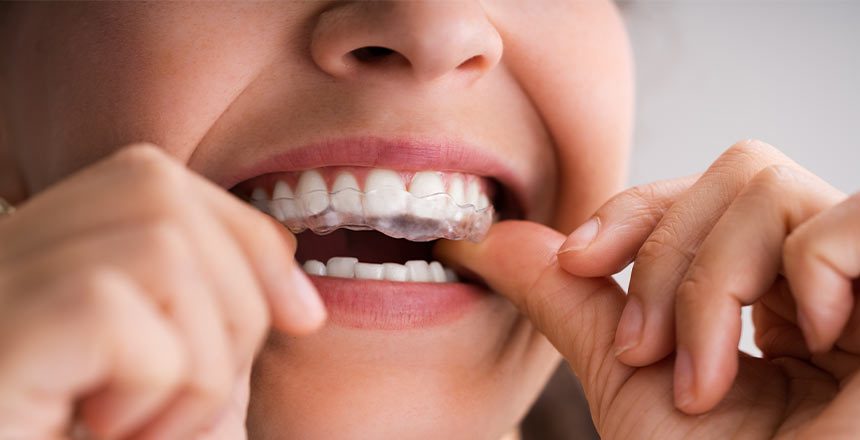Teeth grinding, also known as bruxism, is a common dental condition that affects many individuals and can have detrimental effects on oral health and overall well-being.As a dentist, it is crucial to educate patients about the causes and consequences of teeth grinding. In this article, we will delve into why people grind their teeth and explore the significance of wearing a night guard as an effective preventive measure.
Some causes of teeth grinding
1. Stress and Anxiety: Stressful situations and unresolved anxiety can manifest during sleep as teeth grinding. The subconscious response to stress can cause the jaw muscles to contract, leading to grinding.
2. Misaligned Bite: Dental misalignments, such as malocclusion or an improper bite, can result in excessive grinding. The misalignment causes the jaw to exert extra pressure while chewing, leading to teeth grinding.
3. Sleep Disorders: Individuals with sleep disorders like sleep apnea may experience teeth grinding as a side effect. The body’s attempt to open the airway can lead to increased muscular activity, including jaw clenching and grinding.
4. Lifestyle Factors: Certain lifestyle habits, such as excessive alcohol consumption, smoking, or consuming caffeine, can contribute to teeth grinding.
5. Medications and Substances: Some medications, like antidepressants, as well as recreational substances like ecstasy or cocaine, can trigger teeth grinding as a side effect.
Why use a night guard?
A night guard is a custom-made dental appliance worn during sleep to protect teeth from the damaging effects of grinding. Here’s why wearing a night guard is essential:
1. Preventing Tooth Damage: Teeth grinding exerts excessive force on the teeth, which can lead to enamel erosion, tooth fractures, or wear. Wearing a night guard provides a protective barrier, distributing the forces and minimizing the risk of dental damage.
2. Alleviating Jaw Pain and Headaches: Bruxism often causes jaw pain, facial discomfort, and headaches. Night guards help by providing a cushioning effect, reducing the pressure on the jaw joint and alleviating associated pain.
3. Minimizing Temporomandibular Joint (TMJ) Disorders: Chronic teeth grinding can strain the TMJ, leading to disorders like temporomandibular joint disorder (TMD). Night guards help in maintaining proper jaw alignment and reducing stress on the joint, thereby minimizing the risk of TMJ-related issues.
4. Improving Sleep Quality: Teeth grinding can disrupt sleep patterns for both the individual and their sleep partner. Wearing a night guard helps reduce noise and disturbances caused by grinding, promoting better sleep quality for everyone involved.
5. Preserving Dental Work: Individuals with dental restorations, such as crowns, bridges, or veneers, can benefit from wearing a night guard. By protecting these restorations, night guards extend their lifespan and prevent the need for premature replacements.
By wearing a night guard, individuals can protect their teeth, alleviate discomfort, and ensure a good night’s sleep. If you suspect you are teeth grinding, we would be happy to schedule a consultation for you to provide a proper diagnosis and recommend the appropriate treatment, including the use of a night guard. Remember, prevention is key to maintaining a healthy smile and optimal oral health.


